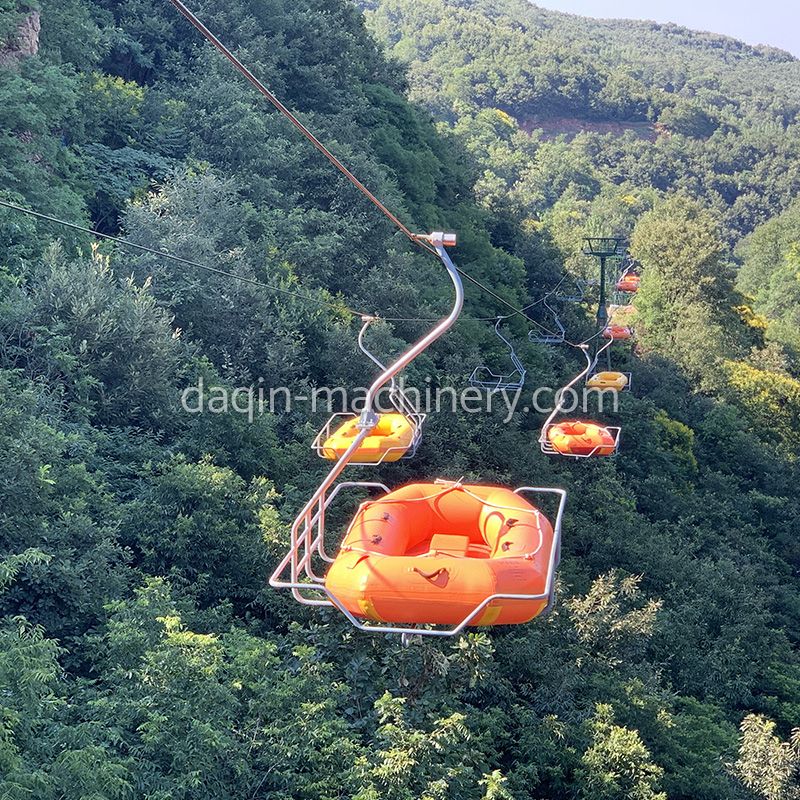Introduction:
Importers play a crucial role in global trade, constantly seeking efficient and reliable transportation solutions to meet their supply chain demands. Fixed towing cableways have emerged as an innovative and advantageous method for importers to transport goods across challenging terrains and overcome logistical obstacles. In this article, we explore how fixed towing cableways cater to the needs of importers, offering them a competitive edge in the market.
Efficiency and Reliability:
Fixed towing cableways provide importers with a range of benefits that enhance the efficiency and reliability of their supply chains. Let's delve into some of these advantages:
Access to Remote Areas: Importers often encounter difficulties when delivering goods to remote or inaccessible locations. Fixed towing cableways offer a reliable transportation solution in such scenarios. By utilizing a network of cables and pulleys, these systems enable the transportation of goods over rugged terrains, including mountains, forests, and water bodies, reaching areas where traditional transport methods fall short.
Timely Delivery: Importers strive to ensure timely delivery of their products to meet market demands. Fixed towing cableways offer a significant advantage in this regard, as they provide a direct and uninterrupted transportation route. By bypassing the challenges posed by difficult terrains, importers can reduce delivery times and improve customer satisfaction.

Cost-effectiveness: Fixed towing cableways present importers with a cost-effective transportation option, especially when compared to the expenses associated with constructing new roads or railways. The installation, maintenance, and operation of cableway systems are often more affordable, enabling importers to optimize their transportation budgets and improve profit margins.
Enhanced Load Capacity: Importers often deal with heavy or oversized cargo, which can pose challenges during transportation. Fixed towing cableways offer the advantage of increased load capacity, allowing for the movement of substantial weights over extended distances. This capability is particularly valuable for importing industries such as construction, mining, and manufacturing.
Suggested reading:Applications:
Industrial Importing: Importers in industries such as construction, mining, and manufacturing rely on fixed towing cableways to transport heavy machinery, construction materials, raw materials, and finished products. These cableway systems provide a reliable means of moving goods directly to project sites, bypassing terrain challenges and reducing overall transportation costs.
Agricultural Importing: Aerial Ropeways are also beneficial for importers in the agricultural sector. They facilitate the transportation of agricultural products, such as crops, livestock, and farming equipment, across diverse landscapes. Importers can reach remote farms and rural areas efficiently, ensuring a steady supply chain for agricultural commodities.
Tourism and Hospitality: Importers in the tourism and hospitality industry often require efficient transportation systems to move guests and supplies to scenic or remote locations. Fixed towing cableways, including cable cars and gondolas, offer a unique and enjoyable experience for tourists while ensuring swift and reliable transport to destinations that are otherwise difficult to access.
Conclusion:
Fixed towing cableways have become a valuable transportation solution for importers, offering enhanced efficiency, reliability, and cost-effectiveness. By leveraging these systems, importers can overcome geographical obstacles, deliver goods promptly, and optimize their supply chains. Whether it's heavy machinery, agricultural produce, or tourism-related needs, fixed towing cableways provide importers with a competitive advantage in meeting their transportation requirements. As importers continue to seek innovative solutions, fixed towing cableways will undoubtedly play a pivotal role in shaping the future of global trade.
Previous
Comments
Please Join Us to post.
0